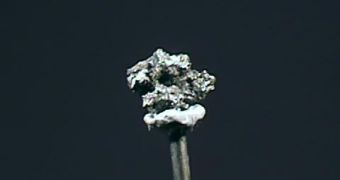Besides its morbid side, breast cancer hits in a woman's sex-appeal.
About 65 % of breast cancers are activated by estrogen and progesterone acting on their receptor molecules, and antiestrogen drugs have good results for these cases.
20 - 30 % of the tumors, some with hormone receptors, are activated by high levels of a growth-promoting protein called HER2, and can be treated with the monoclonal antibody Herceptin.
The third major subtype is present in 15 to 20 % of breast cancers and is not triggered by estrogen, progesterone or HER2, thus these tumors are insensitive to Herceptin or antiestrogen drugs, so the mortality for these patients is high. This subtype is usually encountered in patients with mutations in the BRCA1 gene ("breast cancer gene"), but it can also appear in women without a mutated variant of the gene.
A new report points that BRCA1-associated, triple-negative tumors could be sensitive to cisplatin, a platinum-based chemotherapy drug, employed in treating several other types of cancer.
"This paper describes a specific molecular pathway that makes these tumors sensitive to a therapy infrequently used for breast cancer," said senior author Dr. Leif Ellisen, an assistant professor of the MGH Cancer Center. "We're excited that this work has led to the design of a clinical trial for women with a very difficult to treat form of breast cancer."
The team investigated the function of p63, a key protein in normal breast development, related to the common tumor suppressor p53. The researchers compared tissue samples of triple-negative breast tumors and normal breast tissues for the expression of p63 and p73, a related protein that induces the cell-death (apoptosis).
Most triple-negative tumors oversynthesize specific types of p63 and p73, a phenomenon absent in other types of breast cancers. P63 proved it impedes p73's ability to trigger cell death, while cisplatin impedes p63 to bind to p73, leaving a free way for apoptosis.
"The most important finding was that, if the tumor cells did not express both p63 and p73, the cells were not sensitive to cisplatin. These results suggest that testing p63 and p73 levels in patients' tumors might help predict whether they would benefit from cisplatin therapy." said Ellisen.
A team at the Massachusetts General Hospital (MGH) Cancer Center will test cisplatin in a clinical trial at the MGH Gillette Center for Breast Cancer later this spring.

 14 DAY TRIAL //
14 DAY TRIAL //